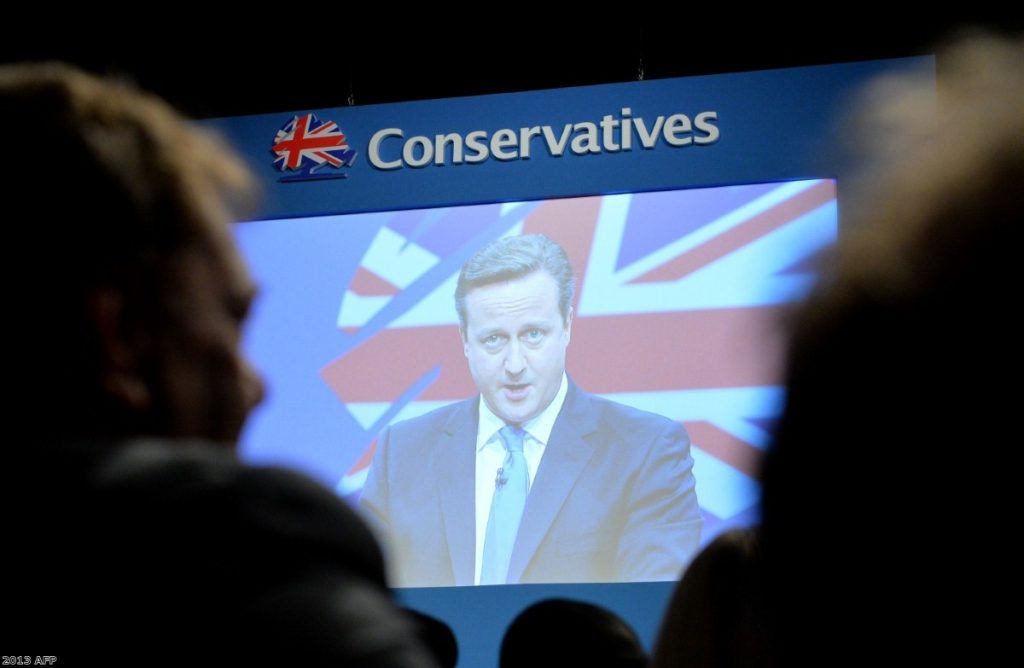Pick of the Week: Cameron’s threat to the Union
Our top five most read articles this week.
5. Boris Johnson humiliated after Theresa May blocks water cannon licence

The London mayor's decision to spend £218,000 on three second-hand water cannon, despite failing to receive any authorisation to use them, was widely questioned last year. The mayor's own party colleagues and even his closest advisers, had warned him against purchasing them, but he pressed ahead anyway insisting that a licence would be shortly forthcoming. Theresa May had other ideas. Following evidence of gruesome injuries and deaths caused by the weapons, the home secretary declined to authorise their use. The decision has been widely seen as a snub to her likely future leadership rival. However, others suggest it is a sign of a deeper political principle on May's part. Either way, most of the favourites to succeed Johnson have indicated that they are opposed to water cannon, so it is looking increasingly likely that the weapons will now not be used against Londoners.
4. The British public deserve a better general election than this


The Scottish referendum should have been a lesson to Britain's political class about the big, even existential issues facing the UK. Unfortunatly, the general election campaign we have seen so far suggests that this lesson has not been learnt. On the one hand the Conservatives have spent the campaign trying to scare English voters about a non-existent deal between Labour and the SNP. On the other hand, Labour have spent the campaign pursuing a seemingly endless debate about TV debates. With the latest election issue being the size and number of Ed Miliband's kitchens, the prospect of this campaign moving onto the real issues facing the country, is rapidly receding.
3. Nigel Farage incites race row after calling for discrimination to be legalised

With such a tiny debate taking place between the two main parties, it is no surprise that voters are increasingly turning to politicians who push bigger and simpler solutions. Nigel Farage's suggestion this week that anti-discrimination legislation should be scrapped in order to allow employers to discriminate in favour of British born candidates was one such apparently simple solution. However, with polls suggesting that growing numbers of voters see the party as racist and nasty, it risks confirming perceptions of the party as 'the BNP in blazers' and risks damaging Ukip's chances of making a significant breakthrough in May.
2. Comment: Eric Pickles' 'evangelical charter' forces people to take part in organised religion

"A small group of Christians in parliament are changing the law, almost unimpeded, to give local councils the power to introduce prayers to their meetings," writes Stephen Evans from the National Secular Society. The little-reported development is being pursued by communities secretary Eric Pickles who regards Britain as a "Christian country". "This bill is an attempt by a handful of religious enthusiasts in parliament to facilitate the encroachment of religion into secular spaces," writes Evans, in our second most-read piece this week.
1. David Cameron is now the greatest threat to the union

The Conservative party were once the dominant political force in Scotland. Their demise has been a relatively recent development which Cameron once promised to reverse. However, with Labour facing almost total wipeout north of the border, Cameron has deserted all hide attempts to improve his party's standing in Scotland. Instead the Tories are now seeking to use Scotland as a bogeyman with which to scare English voters into their arms. For a party which was founded on its commitment to the Union, it is a deeply cynical act, from which the whole country could ultimately pay the price.


